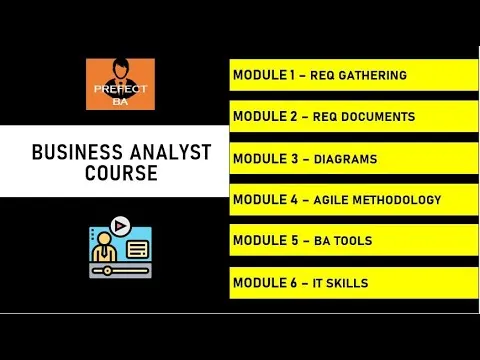
The ACNC: How We Help You 
This course will provide an overview of the Australian Charities and Not-for-profits Commission (ACNC) and its role in the sector. Participants will learn about the ACNC's regulatory jurisdiction, goals and activities, and how they can benefit charities. The course will also cover the ACNC's regulatory strategy, including support and compliance, as well as the advantages of registering charities with the ACNC. Participants will gain an understanding of how these advantages may apply to their own organisation. ▼
ADVERTISEMENT
Course Feature
![]() Cost:
Cost:
Free
![]() Provider:
Provider:
Futurelearn
![]() Certificate:
Certificate:
No Information
![]() Language:
Language:
English
Course Overview
❗The content presented here is sourced directly from Futurelearn platform. For comprehensive course details, including enrollment information, simply click on the 'Go to class' link on our website.
Updated in [May 17th, 2023]
This course provides an overview of the Australian Charities and Not-for-profits Commission (ACNC) and its role in the sector. Participants will learn about the ACNC's regulatory jurisdiction, goals and activities, and how they can benefit charities. The course will also cover the ACNC's regulatory strategy, including support and compliance, as well as the advantages of registering charities with the ACNC. By the end of the course, participants will have a better understanding of the ACNC and how it can help their organisation.
[Applications]
After completing this course, participants should be able to apply the knowledge they have gained to their own organisations. They should be able to identify which activities fall within the ACNC's regulatory jurisdiction and which do not, as well as understand the ACNC's goals and activities and how they can benefit their charity. Participants should also be able to summarise the advantages of registering charities with the ACNC and consider how these advantages may apply to their organisation. Finally, participants should be able to explain the ACNC's regulatory strategy, including support and compliance.
[Career Paths]
1. Non-Profit Manager: Non-profit managers are responsible for the day-to-day operations of a non-profit organization. They are responsible for developing and implementing strategies to meet the organization’s goals, managing staff, and overseeing fundraising and other activities. Non-profit managers must have a strong understanding of the ACNC’s regulations and be able to ensure that their organization is compliant. As the non-profit sector continues to grow, the demand for non-profit managers is expected to increase.
2. Fundraising Manager: Fundraising managers are responsible for developing and implementing fundraising strategies for non-profit organizations. They must have a strong understanding of the ACNC’s regulations and be able to ensure that their organization is compliant. They must also be able to develop and maintain relationships with donors and other stakeholders. As the non-profit sector continues to grow, the demand for fundraising managers is expected to increase.
3. Compliance Officer: Compliance officers are responsible for ensuring that non-profit organizations are compliant with the ACNC’s regulations. They must have a strong understanding of the ACNC’s regulations and be able to ensure that their organization is compliant. As the non-profit sector continues to grow, the demand for compliance officers is expected to increase.
4. Charity Lawyer: Charity lawyers are responsible for providing legal advice to non-profit organizations. They must have a strong understanding of the ACNC’s regulations and be able to ensure that their organization is compliant. As the non-profit sector continues to grow, the demand for charity lawyers is expected to increase.
[Education Paths]
1. Bachelor of Social Work: This degree path focuses on the development of skills and knowledge related to social work, such as understanding the dynamics of human behavior, working with diverse populations, and advocating for social justice. It is an ideal degree path for those interested in working in the charity and not-for-profit sector, as it provides the necessary skills to work with individuals, families, and communities in need. Additionally, the development of social work skills can be beneficial for those looking to work in the ACNC, as it provides the necessary skills to work with individuals, families, and communities in need.
2. Bachelor of Business Administration: This degree path focuses on the development of business skills and knowledge, such as understanding the dynamics of the business world, working with diverse populations, and advocating for business success. It is an ideal degree path for those interested in working in the charity and not-for-profit sector, as it provides the necessary skills to work with organizations, businesses, and communities in need. Additionally, the development of business skills can be beneficial for those looking to work in the ACNC, as it provides the necessary skills to work with organizations, businesses, and communities in need.
3. Master of Public Administration: This degree path focuses on the development of public administration skills and knowledge, such as understanding the dynamics of public policy, working with diverse populations, and advocating for public service. It is an ideal degree path for those interested in working in the charity and not-for-profit sector, as it provides the necessary skills to work with governments, organizations, and communities in need. Additionally, the development of public administration skills can be beneficial for those looking to work in the ACNC, as it provides the necessary skills to work with governments, organizations, and communities in need.
4. Master of Nonprofit Management: This degree path focuses on the development of nonprofit management skills and knowledge, such as understanding the dynamics of nonprofit organizations, working with diverse populations, and advocating for nonprofit success. It is an ideal degree path for those interested in working in the charity and not-for-profit sector, as it provides the necessary skills to work with nonprofit organizations, businesses, and communities in need. Additionally, the development of nonprofit management skills can be beneficial for those looking to work in the ACNC, as it provides the necessary skills to work with nonprofit organizations, businesses, and communities in need.
Course Syllabus
The ACNC is the national regulator of registered charities
What does the ACNC have the power to do?
Course Provider

Provider Futurelearn's Stats at AZClass
Discussion and Reviews
0.0 (Based on 0 reviews)
Explore Similar Online Courses

The Arctic as a System

Cryptographic Algorithms in Java

Python for Informatics: Exploring Information

Social Network Analysis

Introduction to Systematic Review and Meta-Analysis

The Analytics Edge

DCO042 - Python For Informatics

Causal Diagrams: Draw Your Assumptions Before Your Conclusions

Whole genome sequencing of bacterial genomes - tools and applications

Business Analyst Full Course In 2 Hours Business Analyst Training For Beginners Simplilearn

Business Analyst Training for Beginners Business Analysis Tutorial Invensis Learning


Start your review of The ACNC: How We Help You